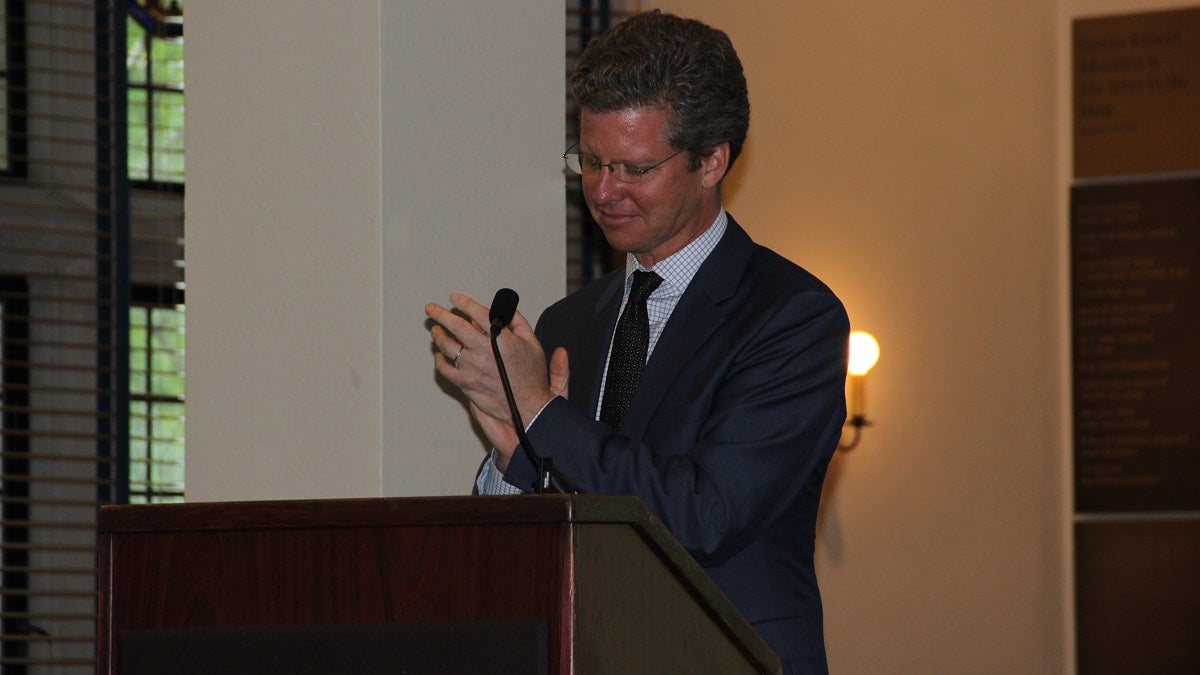Penn conference gathers international data on reducing homelessness

Conference keynote speaker U.S. Secretary of Housing and Urban Development Shaun Donovan said 'research changes the game' in addressing homelessness. (Maiken Scott/WHYY)
Which strategies work in reducing homelessness? Experts on the issue say approaches should be supported by data and long-term evaluation.
A conference this week at the University of Pennsylvania allows an international group of experts to compare notes as it brings together advocates and policymakers from Europe, Australia, Canada and the U.S.
Chronic problem
About 600,000 people are homeless on any given night in the U.S.
“Research changes the game,” said keynote speaker U.S. Secretary of Housing and Urban Development Shaun Donovan.
When communities use approaches that have proved effective in the long term, they get the “most bang for their buck,” Donovan said.
Tracking outcomes can also show that it’s cheaper to house people, than letting them rotate between shelters, emergency rooms and even prisons.
“So when people say we can’t afford to house the chronically homeless, I always respond that we can’t afford not to,” he said. “And that doing so saves both lives and money.”
Effective approaches discussed
University of Pennsylvania social policy professor Dennis Culhane, who organized the conference, listed “rapid rehousing” as one such effective approach. It’s a strategy that aims to get homeless people off the streets quickly.
“Usually the goal is within 30 days,” explained Culhane. “It typically involves mediation with families or landlords, it might be first-last month’s rent security deposit, getting people assessed for what services they may need that may have contributed to their housing loss, maybe getting people connected back into the labor market.”
Culhane said different countries have tried different approaches — prevention efforts, focusing on youth homelessness, or targeting those who have been on the streets the longest.
The conference provides an opportunity to “build up data” around effective approaches, he said.
About 500 individuals were recorded as homeless in Philadelphia during the last count, Culhane said.
WHYY is your source for fact-based, in-depth journalism and information. As a nonprofit organization, we rely on financial support from readers like you. Please give today.

